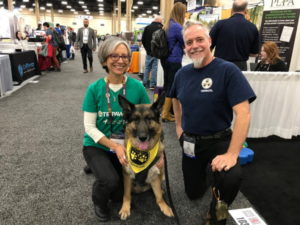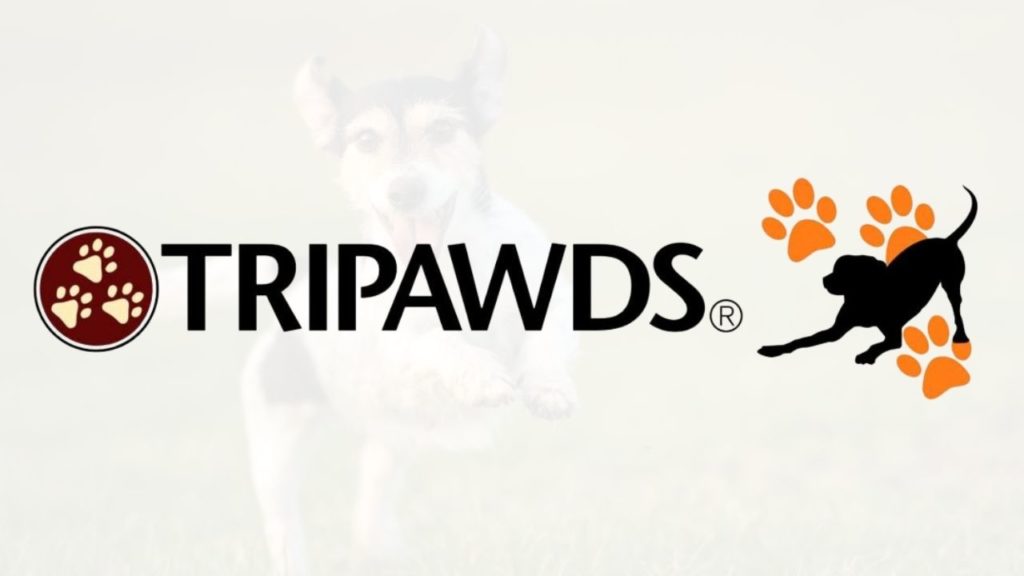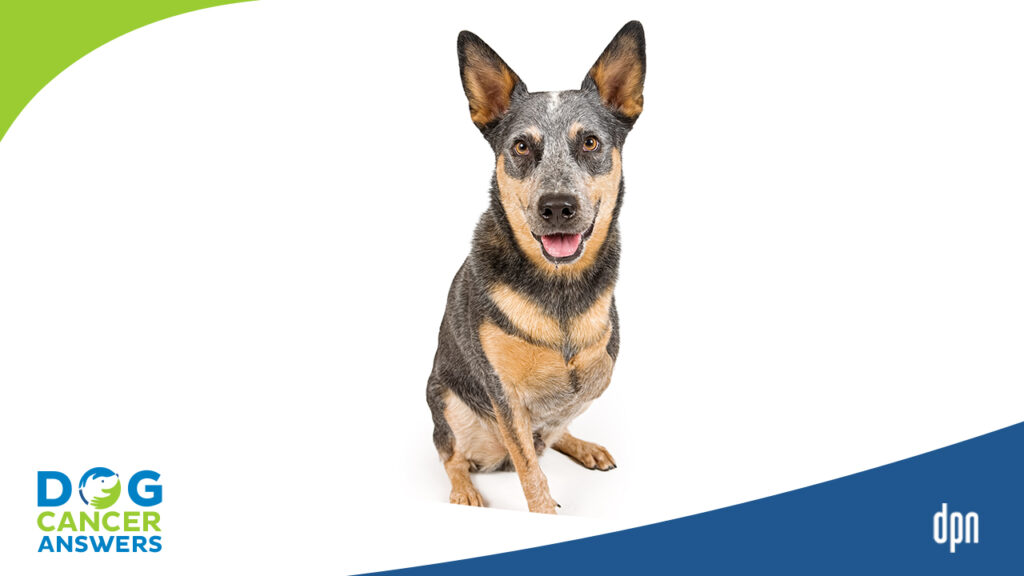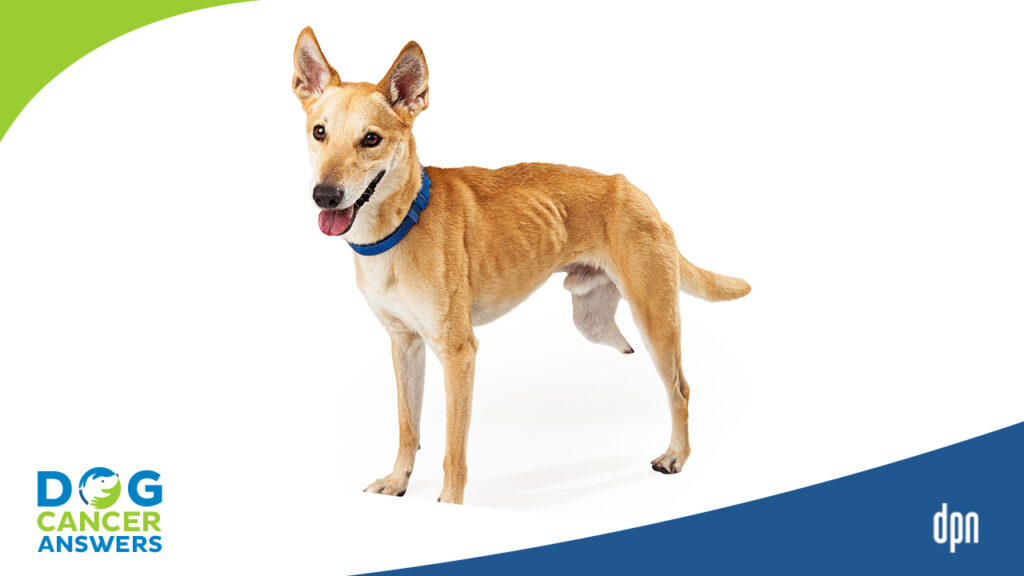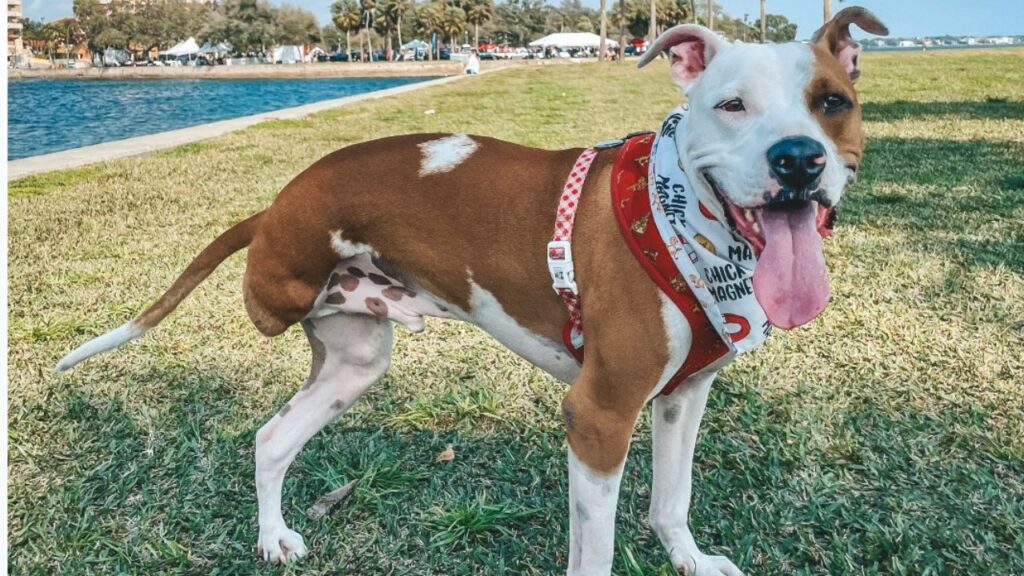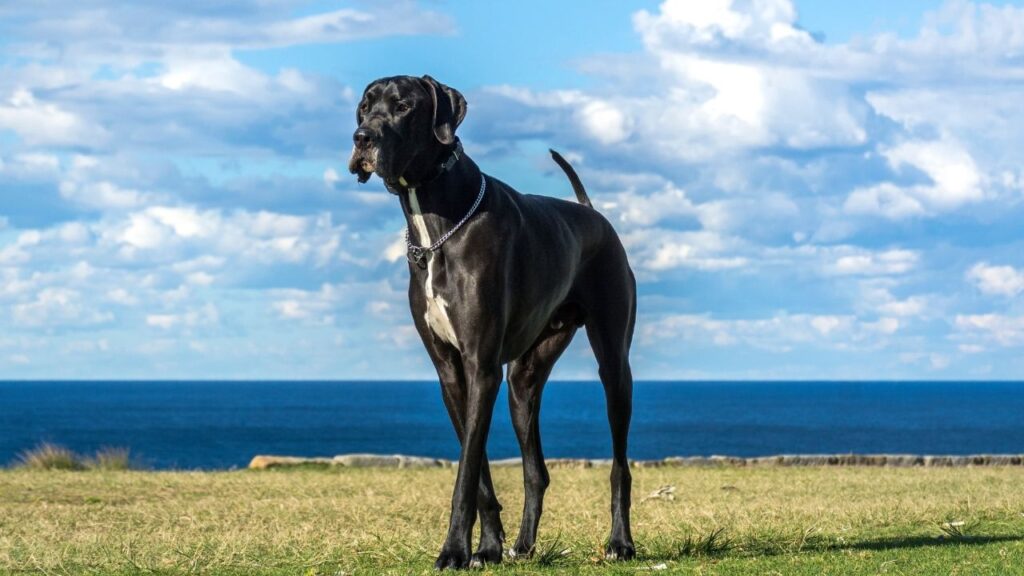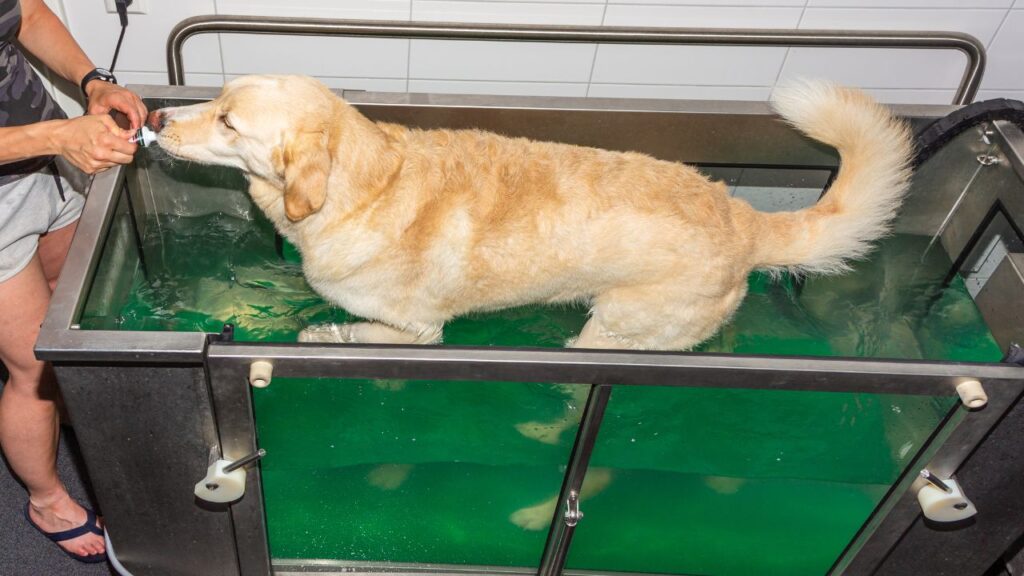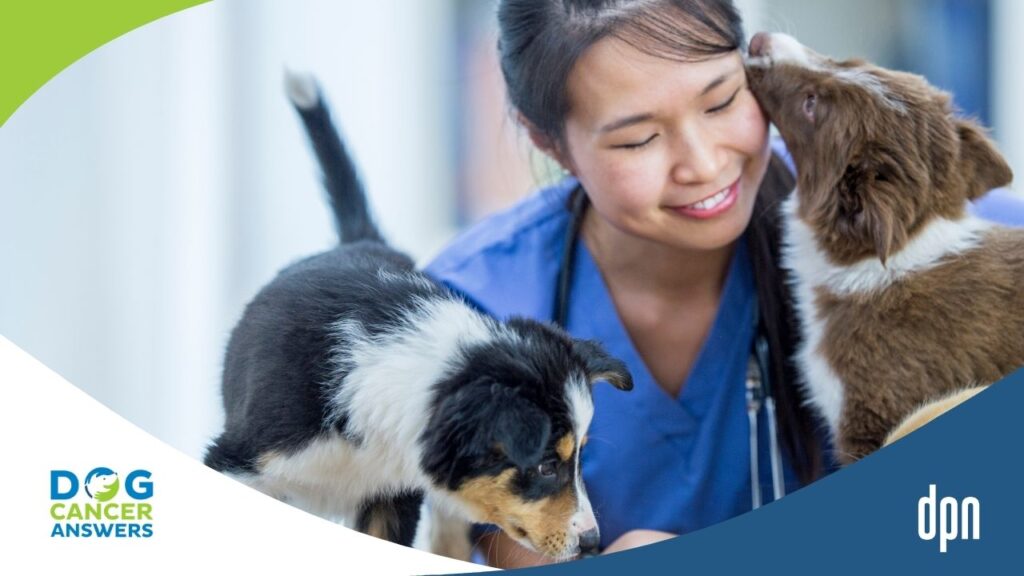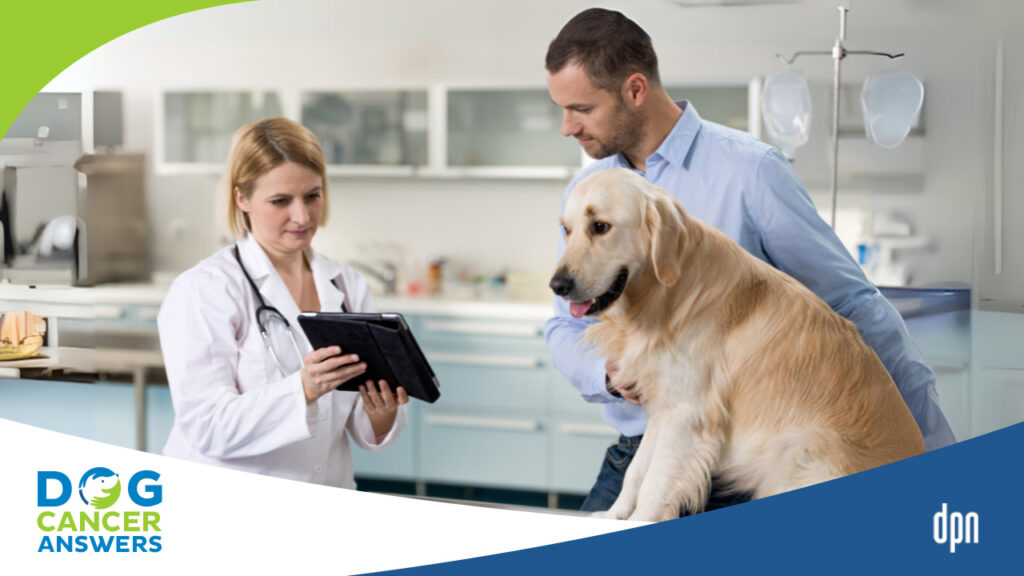EPISODE 74 | RELEASED August 21, 2020
Tripawds: Life With A Three-Legged Dog | Rene Agredano and Jim Nelson Deep Dive
As it turns out, three-legged dogs don’t just thrive—they can teach us a lot about this adventure called life. Rene and Jim tell us about Tripawds.
SHOW NOTES
When the vet recommended amputation for their dog, Rene and Jim were terrified. Little did they know that this diagnosis would help them do a 180 and start living life to the fullest again.
As it turns out, three legged dogs don’t just thrive—they can teach us a lot about this adventure called life. Rene and Jim tell us about their RV lifestyle, writing two books, meeting MUTTS creator Patrick McDonnell, and forming Tripawds, an international community for three-legged dog parents. Friendships, foundations, support groups, and even international parties have grown from what seemed like an unmitigated tragedy. And it’s all thanks to Jerry, a three-legged dog who taught his parents how to live in the moment.
This episode is a gold mine for any dog parent living with or facing amputation, as Jim and Renee have created an amazing community and resources. But the life lessons and joy are worth hearing for anybody and everybody.
Links Mentioned in Today’s Show:
This is the loving HOME for any current or potential tripawd parent. The Tripawds page contains an wealth of resources including forums, a live chat, blogs, reading lists, featured products, and more. https://tripawds.com/
The Tripawds foundation with links to donate, apply for financial assistance and free Tripawds gear, call the hotline, read free veterinary outreach materials, and more: https://tripawds.org/
Rene and Jim’s first book, “Be More Dog: Learning to Live in the Now” https://www.amazon.com/Be-More-Dog-Learning-Live-ebook/dp/B07XR6QQN4/ref=sr_1_2?dchild=1&keywords=be+more+dog&qid=1597873191&sr=8-2
The “Guardian” article covering the first Tripawds gathering: https://www.theguardian.com/lifeandstyle/2017/jul/01/totally-pawesome-at-the-three-legged-dog-convention
The PBS documentary that connected them to Patrick McDonnel: https://tripawds.com/tag/pbs/
The “Mutts” comic: https://mutts.com/about-patrick/
>> Rene Agredano: A lot of people tell us that they enjoy being part of the community because there’s no judgment. And we tell people, this is a judgment free zone. We don’t care how you treat your dog’s cancer. We will support you no matter what you decide, because every situation is different.
>> Narrator: Welcome to Dog Cancer Answers, where we help you help your dog with cancer. Here’s your host, James Jacobson.
>> James Jacobson: Hello welcome to the show. We have a great one for you today. This episode is a little different because we have two guests joining us, Rene Agredano and Jim Nelson. They have written the book “Be More Dog,” “Three Legs and a Spare,” and founded a very special community called Tripawds. That is Tri, T-R-I, pawds, P-A-W-D-S. It’s an international group that has been featured in The Guardian, PBS, and now today on Dog Cancer Answers. And it all began with a tough diagnosis, a three legged dog named Jerry, and the cross country trip of a lifetime. Rene Agredano and Jim Nelson. Thank you for being with us today.
>> Rene Agredano: Hey, it’s great to be here.
>> Jim Nelson: Thank you for having us.
>> James Jacobson: Now, where are you today? ‘Cause you travel around the country.
>> Rene Agredano: Well, we are in Southern Oregon in the mountains, right outside of Eugene. It’s just gorgeous up here.
>> James Jacobson: You’re in your RV, right?
>> Jim Nelson: Correct. We travel full time in our mobile headquarters,
>> James Jacobson: Your mobile headquarters. That sounds so much better than RV. Okay. Let’s do a little history for everyone ’cause I think it’s fascinating. You have a design business in California in the early two thousands. And then one day your dog, Jerry, something happened with Jerry.
>> Rene Agredano: Yeah. Jerry started limping and we didn’t know why. And our vet didn’t know why either. And this went on for a few months, and we really didn’t know anything about dog health or we didn’t even know dogs got cancer back then and just kept kind of trying to figure out why he was limping.
Until one day, the vet tech at our clinic took us aside and quietly said to us, ‘You might want to go get another opinion.’ And we’re like, ‘What? Why would we do that?’ But we did. And we went down to Davis and they confirmed that Jerry had osteosarcoma. And that was a really ugly word that we never intended to learn about, but we did. And when the vets suggested amputation as a way to give him a good quality of life, we were stunned. We just did not know that a dog could get around on three legs.
>> Jim Nelson: We almost didn’t proceed with it. I mean, we hiked a lot with Jerry and I couldn’t imagine having a three legged dog, how is he going to do what he will do until the vet said, ‘The amputation will not get rid of the cancer, but it will get rid of the pain.’ And that kind of sunk in with me because I didn’t want my remaining time with Jerry, for him to be in pain.
>> Rene Agredano: We were pretty shocked by the suggestion that we take his leg to give him a good quality of life because like everybody else, we associated a lack of a limb with a lack of a life. And it wasn’t until we started looking around on the internet for signs that he could have a good quality of life and that we ran into a video of a Great Dane named Moose.
And in this video, Moose was digging for gophers and he was having so much fun. He was missing a front leg and you could hear his dad in the background going ‘Get him, go get him, get the gopher.’ And Moose was gigantic. And Jerry was only 75 pounds. And we looked at that video and thought, ‘Wow. If Moose could do that, so could Jerry. Why couldn’t my dog do that?’ So it took us about a good 48 hours to finally realize that, yeah, this was something that we needed to do. We wanted more time with Jerry, but we wanted to make sure it was a good time and that video pretty much convinced us.
So that’s when we told the vets at Davis, ‘Yeah, let’s go ahead and do it. ‘And we did. And what a shock.
>> James Jacobson: So walk me through the day you brought Jerry in for surgery. And what was that like?
>> Rene Agredano: I remember him walking around the front of UC Davis and he just had the saddest limp and his ears were back and he just looked terrible. And I thought, ‘I hope we’re making the right decision. I hope my dog walks out of here and he’s happy again.’ And we dropped him off at the hospital and went back to the hotel and cried.
And we cried a lot and we got on our laptops and we started digging around. ‘What’s out there, is anything out there going to give us hope that this is the right thing to do?’ And it was pretty hard to find. There was a lot of clinical information back then, but not a whole lot of videos like Moose, very little in the way of feeling like we made the right choice.
So we just had to go with our gut feeling and we waited for that phone call from the surgeon to tell us, ‘Yeah, we can get this tumor. We can get the leg off and we can let your dog go home.’ And I think that was about six of the most agonizing hours of our life.
>> James Jacobson: Okay. So you get the phone call. They call you when the surgery is over ?
>> Jim Nelson: The next day.
>> James Jacobson: Okay.
>> Jim Nelson: And I didn’t know what to expect. I thought they were going to wheel him out on a gurney with an IV and, you know, thought, “How’re we going to get him home?’ We got to pick up at the time. So we made a big bed in the back with a bunch of foam. And when we picked him up, the vet had a cone and, you now, a knee collar in his hand. And Jerry was hopping down the hallway with a big grin on his face. Yes, it was Thanksgiving day and he looked like a carved it up turkey, but I saw the smile rather than this large incision. He was just so happy. The pain was gone.
>> James Jacobson: Renee. What was that experience like from your memory?
>> Rene Agredano: I just, I cried and it was partly I cried because it was so great to see him excited again, and his ears were standing up and I cried because it was scary. I had no idea how we were gonna care for him. I thought ‘Our life is going to be completely different with this dog,’ but I was just glad that we were able to take him home. And I thought ‘Whatever happens from here on out is just icing on the cake. We have our dog again, and he’s happy.’
>> James Jacobson: Jim, you said something striking. You didn’t look at the incision. You just looked at his smile.
>> Jim Nelson: It’s the first thing that struck me. Yeah. I was happy to see him alive and well and hopping. And I was surprised and I had a way of looking into Jerry’s eyes and I believe we did communicate. And it was almost as if he was saying, ‘Thank you.’
And then I saw the side of his body, all shaved and this large scar and was shocked. And didn’t want him to know how shocked I was. I wanted. Just to be a good example for him and let’s move on with life. And then we adapted to that new normal, and he taught us a lot of lessons along the way.
>> James Jacobson: What were some of the lessons?
>> Jim Nelson: Well, the first one was, um, the ability to bounce back. Just an incredible resiliency, you know, just to be resilient and regarding, you know, whatever might happen to you to be able to bounce back was really an eyeopener for us.
He was adaptable. I mean, he taught us how to adapt. You know, those first couple of weeks were difficult, but he adapted well to life on three legs and he persevered.
Perseverance is another thing. He taught us on a number of occasions about, you know, things that he would just keep at. And if it was a little more difficult now he would still do it.
>> James Jacobson: Renee. What about you? What lessons do you think that, ah, Jerry gave you in those early days?
>> Rene Agredano: The biggest one was that he just accepted what had happened to him. He wasn’t looking back and he wasn’t thinking about his leg that was gone or how different his life was gonna be.
He wasn’t worried about anything that I was worried about. He just wanted to go out and have fun again. And I saw that and I thought, ‘Man, that is what I should be doing.’ And that, that was, you know, partly why we wanted to travel with him because there was no Before, there was no After, there was just Now.
>> James Jacobson: Let’s talk about this Odyssey. You decide ‘We’re going to sell everything and just go on the road, the three of us.’ Tell me about that decision. Why did you make that?
>> Rene Agredano: We had run our business for 10 years and it was really stressful. A lot of really long days, we basically had very little time to spend with Jerry doing fun things. He was with us all day. We used to call him our Chief Fun Officer and he kept us sane during those crazy times, but he also paid a price. He didn’t really get to go have a lot of fun. Cause we were just too busy trying to grow this business.
And when we found out he had very little time left, we thought, ‘What does Jerry love to do the most? Jerry loves to go camping. Jerry loves to meet people. Let’s get out and let’s go travel’. And since RVs are so comfortable and they make it really easy for dogs to travel with you, I thought, ‘Well, let’s look at an RV and see if we can take some time off and travel together and just go have some fun, and then we’ll figure out what we’re going to do after.’
>> Jim Nelson: the timing was perfect. We were at a point in our business where we were both getting pretty burnout and we either needed to hire sales help, and that meant production help and vice versa.
>> James Jacobson: And that’s when the idea of creating a blog started?
>> Jim Nelson: Kinda, this was 2006 and they gave him a prognosis of, you know, six months, maybe a year. So Renee had this idea that we should sell the business, sell the house and buy an RV. And in doing so we started a little blog to share Jerry’s story and our adventures on the road. And the doctors at UC Davis and the vet techs all referred to these three legged animals as tripods, like a stool.
I thought that was kind of derogatory. And I spelled it a little differently with a paw in the middle, tripawds.com, and registered that domain to kind of reclaim the word for three legged dogs and cats everywhere and empower it to give it more meaning and give some substance to these animals and especially our Tripawd hero, Jerry.
>> James Jacobson: Okay. And so what did Jerry think when he was moving from the office to this incredible mobile home?
>> Rene Agredano: He was pretty excited. He went inside and he just kind of looked around and it smelled brand new to him. And he seemed to like it. He jumped up on the couch and just kind of made himself at home and looked at us like ‘When can we leave? ‘
>> James Jacobson: So where was your first trip? Where’d you go first?
>> Rene Agredano: Our first trip was, we went up to Portland from Northern California to go get the RV and we drove it back and Jerry just had a ball. He is like, ‘What is going on? This house is moving. I get wet. I get to lay on the couch and then we’re going to be somewhere new tomorrow.’ And it was so fun. And then we, once we sold our business and the house, we handed the keys to the new owner and we got in the RV and pulled away. It was the best day of our life.
>> Jim Nelson: You know, we thought we were on borrowed time here with Jerry, which it was. So we were kind of on a schedule that first year, and we were traveling almost every day or we’d find somewhere we love and stay a few days because we didn’t know we were going to do this full time for the rest of our lives . We kind of added these to our short list of places that would become, you know, where we would settle down in the future.
And then as Jerry kept beating the odds, I mean, a year went by, 16 months, went by and we just kind of kept on traveling. And, um, we were just burning through our savings by doing that.
Meanwhile, Jerry’s blog had kind of grown. And we were getting emails all the time from different people, with different types of dogs, with different types of cancer. So I installed discussion forums on the site to allow people to tell their stories to each other. And from there the site really kind of took off and we realized ‘This could be our next business, but we never want to charge anyone. We want to keep this free resource available.’ and we started to share more and more information. At first, it was just like, look at Jerry, looking at him play, look how well he’s doing. But as he went on, we started interviewing veterinarian and rehab specialists and Renee did more research about nutrition.
So the content became much more valuable and it ended up with so much content our biggest complaint from people was that ‘There’s so much information, how do I find it all?’ So we developed a few eBooks and that started some residual income to help us keep the site going. And after that, we discovered assisted devices, like the harness from Ruffwear and we started develop some dropship arrangements with manufacturers to sell harnesses that people will need, but only if Jerry had tried them. You know, stuff that we had trusted and known–
>> James Jacobson: Tried by Jerry.
>> Jim Nelson: Yeah, exactly.
>> James Jacobson: And tell me a little bit about when you started realizing that people were being drawn into Tripawds and you started helping dogs around the world, right? Cause this is not just the U.S side of the scene–
>> Rene Agredano: Mmhm.
>> Jim Nelson: Yeah.
>> James Jacobson: –There’s so many around the world. Any particular memories where you were like, ‘This is an interesting dog’?
>> Rene Agredano: Well, yeah, yeah.
>> Jim Nelson: So many.
>> Rene Agredano: A lot, a lot of dogs from all over the world. And when we got an email one day from a woman in Israel who wrote to us to say that she had decided to amputate because her dog also had osteosarcoma and amputation in Israel was practically unheard of back then. Nobody went that far for their dogs who were sick. She was kind of an outcast. And when she found us, she was like, Oh my God, I’ve found my tribe.’ And she joined us and made such a huge contribution to the community because we learned that dog people are dog people all over the world. And we all have the same goals, which is to give our animals the best quality of life possible.
Cancer is scary enough. And when you can have somebody there who understands the decisions that you’ve made and can empathize with you, when you have to make tough choices about treatment, it feels really good. You don’t feel as alone.
>> James Jacobson: Let’s talk a little bit about the foundation that you guys have set up. What is the name of the foundation and what does it do and how could one qualify?
>> Jim Nelson: So in 2014, we finally, uh, formed the nonprofit Tripawds Foundation to keep all of these resources on the website free and available to the public. We didn’t ever want to charge people for their blogs or your access to this information. So we created the foundation that keeps all those things free. And then as donations increased, we were able to implement assistance programs.
So we’re now offering free veterinary rehab consultation to anyone with a three legged dog or cat, no income qualification or anything. We want people to know the importance of weight management and rehab exercises. So if they go see a certified professional, we’ll reimburse them for their visit.
We’re also now offering what we call the Amputation Surgery Assistance Program. So Tripawds ASAP will actually reimburse up to $500 to help pay for surgery costs for families in need, so that one’s income qualified, but it’s as simple as applying and showing the receipt for your amputation and we’ll help pay for that amputation for your dog or cat.
We do that twice a month and then 24-7 there’s the Tripawds helpline, which is now available, thanks to the foundation, which is a toll free number people can call to speak with volunteer hosts who understand. We’re not vets. We tell them right away, you know, ‘We aren’t vets. If this is an emergency, please call your vet. But yeah, your dog may not poop after the first couple of days after amputation’ or’ yes, that sounds like a seroma, but if it smells bad, you want to talk to your vet’ and just point them towards the many free resources on the site. Or offer that, you know, that shoulder for people to cry on.
We actually save vets and techs a lot of time spent answering emotional questions. They can do their job, do their professional business, send the people home with a bag full of medicine, and then they can call our helpline to talk to people who understand. Cause there’s oftentimes you don’t get the support you need from friends and family. And that’s what we’re all about.
>> James Jacobson: If our listener wants to get involved or learn more about the foundation benefit either to receive or to donate. How do they do that?
>> Rene Agredano: Just go to tripawds.org, T-r-i-p-a-w-d-s dot org.
>> Jim Nelson: So tripawds.org has all the assistance programs and applications and donation page to help keep all this stuff going.
And then tripawds.com Is where people will find the massive amount of video interviews and the tripawd talk radio podcast and the eBooks and the discussion forums and the live chat and all that.
>> James Jacobson: And all those links are in the show notes for today’s episode. One of the ways that we, I guess, got to know each other so many years ago was when you guys discovered The Dog Cancer Surivival Guide, by Dr. Dressler, and Dr. Ettinger, or was it the first edition with just Dr. Dressler?
>> Jim Nelson: Yeah, it was pretty much Dressler at the time.
>> James Jacobson: Tell me about that.
>> Rene Agredano: I always tell people, I wish The Cancer Surival Guide was around when Jerry was fighting cancer. If that book had been around, I would have looked at chemotherapy and cancer treatment in a completely different way. We didn’t know anything back then. And you know, it was 2006. Veterinary oncology was still pretty new in a lot of places. And even at UC Davis, they didn’t really educate us the way they do now. So we immediately thought about all of the bad things that chemotherapy is associated with. And we just said, ‘No, no way. We’re not going to do that to him.’ Had The Dog Cancer Survival Guide been around. I might’ve considered other treatments besides just amputation. So we feel that it’s one of the best decisions somebody can make when their dog gets cancer. No matter what kind of cancer is to get the book, find out everything that’s available, and then go talk to an oncologist about it. Don’t just go in there with the mindset that you’re not going to do something because you’ve heard bad things about it. Get educated and that book is indispensable for doing that.
>> James Jacobson: Well, this makes a perfect time for a break. I can hardly recommend The Dog Cancer Survival Guide more thoroughly than Jim and Renee already have. I appreciate that. I will tell you that this is an invaluable book andsponsors our podcast Dog Cancer Answers. You may not know that Dr. Demian Dressler wrote it for the very reason Renee described; He was frustrated that so few dog parents knew about the many opportunities increasingly available in prevention, treatment, and palliative care and emotional support. Another veterinarian, veterinary oncologist Dr. Sue Ettinger has collaborated on newer editions of the book and added her genius to this. But their mission remains the same: Get the best and most updated information on dog cancer to dog parents all over the world.
The Dog Cancer Survival Guide is available wherever fine books are sold in both paperback and ebook editions. And if you’d like to support us in our work here at Dog Cancer Answers, go to DogCancerBook.com and can get it a discount direct from the publisher. The ebook is available for under ten dollars, and if you get the paperback edition , which I recommend, you can enjoy free shipping for the paperback anywhere in the United States. Use the Dog Cancer Answers coupon code, and you can support the show, which helps all of us, while getting the book directly from the publisher.
Here is how to save 10%: Use the promo code “podcast” when you check out at the website DogCancerBook.com. Again, promo code “podcast” at website DogCancerBook.com. And when you check out you will save 10% and help support the show.
And we’re back to discuss the Tripawds community with Jim and Rene.
Now, I know that you have done some events where people have come from all over the world.
>> Jim Nelson: We have. Renee, what about Virginia?
>> Rene Agredano: Yeah, that’s right. Yeah. So everybody asks us, where are you located? People want to know where Tripawds is and we tell them ‘We’re on your desktop or on your phone. We’re right there.’
But people do want to connect in person. So we started this little section in our forums called Tripawds Parties and little informal chapters started forming. A chapter in Northern California and then a chapter in Virginia. And pretty soon people started saying, ‘You know, we should have a national gathering.’
And these Virginia people started planning a get together in Richmond. And before long, there were members in Germany and Britain and Australia, and they were, they were saying, ‘You know, it’d be kind of fun to fly over to the States and meet everybody.’
And this all started coming together, purely organically, so being that we live in our RV, we decided to drive out there and surprise the members. And it was so worth it. We drove out from Colorado to Virginia. And got to meet so many neat people. So the party was really, really exciting and we made the newspaper and in The Guardian and Claire wrote this fabulous story about the organization and then the bonds that people have formed. We have members whose dogs have passed away over 10 years ago, and they’re still meeting up regularly. They’re still talking to each other on Facebook and over the internet. And it’s beautiful to see these friendships grow out of a tragedy like cancer.
>> Jim Nelson: there is a connection between those people that is just amazing. We have had members, you know, pitching and buy an air conditioner for another member in a hot region of the United States because she couldn’t afford one at the time. And there’s stuff that goes on behind the scenes that just really dumbfounds us sometimes, and really hits us right at home and makes us realize how grateful we are for what we’ve created.
>> Rene Agredano: A lot of people tell us that they enjoy being part of the community because there’s no judgment. And we tell people, this is a judgment free zone. We don’t care how you treat your dog’s cancer. We will support you no matter what you decide, because every situation is different.
>> James Jacobson: So when did Jerry lose his battle with cancer?
>> Rene Agredano: It was 2008? It was a while ago.
>> James Jacobson: And how was that experience?
>> Rene Agredano: Ooh.
>> Jim Nelson: by that time we had worked our way up to, uh, Yellowstone National Park, and we had made a pact with Jerry. We had our own signs that would tell us when it was time and preparing for that time, knowing would come and knowing what decision to make when the time came really made it a lot easier. But when incontinence started and serious mobility issues started, we knew it was time. And we found that through our community, one of our members had a sister in the area who knew a great vet, and we set him free under the big Montana sky outdoors. And we saw him go as we wanted to remember him to be, he had a smile on his face and let us know it was time and we helped him through that transition.
>> James Jacobson: I imagine that is a big question that people in your community grapple with and talk about a lot and you get support from y’all on and each other.
>> Jim Nelson: Very much so, and again, there’s no judgment there either, because some people tend to think other people go too far or don’t go far enough, but you know what? That’s a decision between you and your dog and your vet. And there’s no judgment there, but it always comes up.
>> James Jacobson: Tell me about your next arc, Wyatt you decided, ‘Okay. It’s time we get a new dog.’ And so you went out and found Wyatt.
>> Rene Agredano: One of our members in Northern California was very active in German Shepherd rescue. And one day she posted a picture of the most handsome Shepherd puppy I’d ever seen in my life. And she said, ‘I think he would make a great Tripawd spokes dog, don’t you?’ You need a new dog. He was missing a rear leg out of neglect.
>> James Jacobson: So it was not cancer.
>> Rene Agredano: It was not cancer. No. His previous human, I use that word loosely, left him tied up in the yard and forgot about him and the rope cut off circulation to his leg. And the person was nice enough to take him to the vet, but dumped him there. So the vet took the leg and then turned him over to rescue. And that’s how we found him.
He was just so energetic and he was just so puppy and nothing was slowing him down. He was missing a leg. It was like, he’d never even had one in the first place. He was just running around with the other dogs and, and having a ball. And he was nothing like Jerry, nothing at all. And I said, ‘He’s perfect.’
>> James Jacobson: And that was 11 years ago.
>> Rene Agredano: Yeah, it was, yeah. Wyatt just turned 11.
>> James Jacobson: Pretty amazing. And so now your journey has taken you not only around the country, but you’ve created these books. Tell us a little bit about the books and your most recent book.
>> Jim Nelson: Sure. That’s the big culmination that tells our story. The first earliest books were canine amputation handbooks, kinda guides of resources, top information you need to know about making the best of life for your newly three legged dog. The second one is about rehab for three legged dogs and the importance of exercise. And those are eBooks that we sold through the website
and all along for the past, you know, ever since Jerry left, really we’ve been taking notes and jotting down ideas for the memoir, you know, Jerry’s story. And it took us more than 10 years to craft it and get it right in such a way that shares the lessons he taught us. And just October of last year, we published Be More Dog Learning to Live In The Now. We finally came up with, you know, what he was trying to tell us and what we wanted to share with everyone. So Be More Dog kind of talks about why we hit the road a little bit before his amputation, those first couple years on the road and how we developed the Tripawds community and those important lessons I was talking about that he helped share with us along the way.
And it features a forward and original illustration by Patrick McDonnell. He creates the Mutts comic strip, and we had actually met him in person at a reading and he got to meet Wyatt in 2009. And I had mentioned something about a book and then like, literally like 10 years later, I reached out to him and he agreed to do this forward. And it was really amazing.
>> Rene Agredano: But wait, there’s a backstory about Patrick.
>> Jim Nelson: Yeah.
>> Rene Agredano: So when we found out that Jerry had lung metastasis, we were in Los Angeles with my parents and one morning we opened up the newspaper and there was this Mutts comic strip in there and being fans, of course, we went and looked at it. Jim did, he actually found it. And there’s a picture of Earl.
Ozzie’s his person and he’s working at his desk, and he’s working like a workaholic, like we always did. And he says, ‘What time is it? I wonder what time it is.’ And Earl, the dog jumps up in the next panel and says, “Now, Now, Now, and they go for a walk and Ozzie says, ‘Dogs always know what time it is.’
>> James Jacobson: Wow.
>> Jim Nelson: I cut that thing out. ‘Cause this was the morning after we had just got news about the metastasis coming back and I had a nightmare and wasn’t–that comic strip is still inside our medicine cabinet door to this day
>> Rene Agredano: So the comic strip has traveled with us ever since. And we happen to mention it in a PBS documentary that we were in. Right after Jerry passed away the show aired. And in the show, they kept the segment where Jim recites the story about the comic strip. Well, two ,three years later, we see Patrick McDonnell. He’s giving a reading in Denver and we said, ‘we need to go. We need to go meet him and tell him how much that comic strip meant to us.’ And we stuck around until the reading was over. And when we went to go introduce ourselves and tell him the story, he said, ‘You! I saw that show. I know you guys.’ He said ‘I watched it, my wife and I both loved it.’ And we were, we were shocked. About a month later, Patrick mailed us a package with the original illustration, the original comic cell. And he gave it to us and dedicated it to Jerry. And that just like, me, it gets me all teary eyed thinking about it.
>> James Jacobson: That is beautiful.
>> Jim Nelson: And that’s what Be More Dog is all about, about living in the now and how the many different lessons that Jerry kind of illustrated that. The title actually comes from a keynote address Renee and I gave at a canine cancer conference in, I think it was 2011 or 12, and we were presenting to attendees about how to really best cope with your dog’s amputation and diagnosis and cancer. And we titled that talk Be More Dog because that’s our message, you know. WHen people come to the community and they’re distraught, I tell them ‘Your dog’s going to do much better than you are during this. You need to follow their lead. You need to be strong to help show them that their life is going to be okay again.’ So Be More dog, follow their lead. They don’t know they have cancer. They’re going to adapt and overcome.
>> James Jacobson: Well. I think that’s a great place to stop. Be More Dog Jim Nelson, Renee Agredano. Thank you so much for being with us today.
>> Jim Nelson: Thank you very much.
>> Rene Agredano: Yeah, this was fun.
>> James Jacobson: Those are 2 of my favorite people in this ever-growing dog cancer community of dog lovers who support other dog lovers dealing with cancer. Jerry may have lost one leg, but that diagnosis urged Renee and Jim to build an incredible lifestyle, write two books, build an amazing international community and foundation. And don’t forget to check out the shownotes for details on the books and the blogs and hotline and live chat and financial assistance and other resources. We have all of those links on our website on a dedicated page at DogCancerAnswers.com/jerry.
Keep in mind it all began with Jerry’s diagnosis and the wakeup call it provided for Renee and Jim. We can take many lessons from that story. Perserverence, adapting, looking forward. But the most improtant one, I think, is Be More Dog–live in the moment. Renee and Jim have certainly heeded that lesson and paid it forward. Hopefully we can all do the same, especially knowing that there’s an amazing community to help support us.
y<<TOUCH TONE SFX>>
Ah, those touch tones reminds me us that veterinarians are “on call” on our Listener Line. For you. If you have a question for a dog cancer vet, please call our listener line and tell us all about it. We’ll send it to one of our veterinary experts. After that, your question and we will feature it on a future episode of Dog Cancer Answers. The telephone number Is 808-868-3200 or of course you can visit our website at DogCancerAnswers.com.
AD MUSIC
Post-Roll Ad
Once again, we’d like to thank The Dog Cancer Survival Guide BOOK by Demian Dressler and Sue Ettinger. It is available both online and in brick and mortar stores. And remember, if you get that book through the publisher’s website it helps support this podcast. Get it directly at DogCancerBook.com. Use the promo code “podcast” for 10% off. That is www.DogCancerBook.com.
Our heartfelt thanks to Rene Agredano and Jim Nelson for joining us today.
Until next time, I am James Jacobson. From all of us here at Dog Cancer Answers, and Dog Podcast Network–I wish you and your dog a warm Aloha.
>> Narrator: Thank you for listening to Dog Cancer Answers. If you’d like to connect, please visit our website at Dog Cancer Answers dot com. OR call our Listener Line at 808-868-3200
And here’s a friendly reminder that you probably already know. Our podcast is provided for educational and informational purposes only. It’s not meant to take the place of the advice you receive at your dog’s veterinarian. Only veterinarians who examine your dog can give you advice or diagnose your dog’s condition. Your reliance on the information you hear on this podcast is solely at your own risk. If you dog has a specific health problem, contact your veterinarian. Also, please keep in mind that veterinary information can change rapidly, so some information may be out of date. Dog Cancer Answers is a presentation by Maui Media in association with Dog Podcast Network.
Hosted By
SUBSCRIBE ON YOUR FAVORITE PLATFORM
Topics
Editor's Picks
CATEGORY
